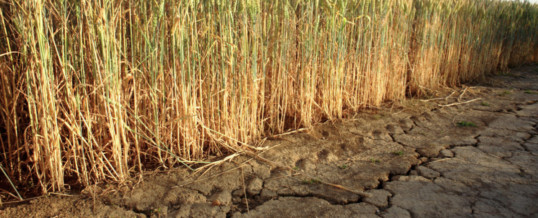
BERLIN, GERMANY — Severe water scarcity events are expected to impact up to 60% of the world’s wheat-growing areas by the end of the 21st century, according to a recently released strategy paper from the Wheat Initiative, a group of public and private entities engaged in wheat research.
The group’s second version of its vision paper, “An International Vision for Wheat Improvement,” included a section devoted to the impact of climate change on wheat production.
“Water is the single biggest factor in influencing wheat yields,” the Wheat Initiative said in its report.
The paper also cited research showing that each 1 degree C increase in temperature is predicted to decrease wheat yield by 7% on average.
The paper noted that drought and heat stress are becoming increasingly prevalent, with around half of all wheat globally experiencing periods of heat stress and 20 million hectares or more routinely experiencing water deficits.
It said extremes in temperature and precipitation “are already attributed to 40% of inter-annual wheat production variability.”
“While the adjustment of maturity to the environment has been critical to building wheat yields, problems arise during abnormal seasons when the development path of elite varieties no longer matches the rainfall and temperature patterns,” the Wheat Initiative authors said in the paper. “Increasing climate variability is exacerbating the problem.”
Other factors, such as higher night temperatures, heat shocks, unstable rainfall patterns and nutritional factors, are not accounted for in the study but “are likely to further negatively impact wheat yields.”
According to the paper, research priorities include increasing genetic diversity and understanding root and soil biology.
The Wheat Initiative was created in 2011 and connected wheat researchers worldwide to promote food security.
Wheat is the world’s most traded food grain, with 25% of total production traded internationally.
Source: World Grain
JUL
2022


About the Author: